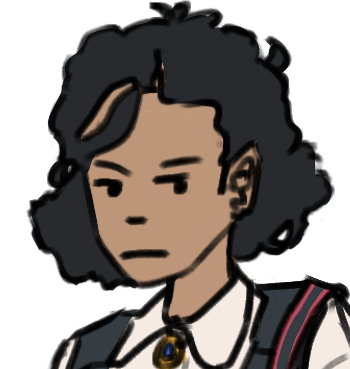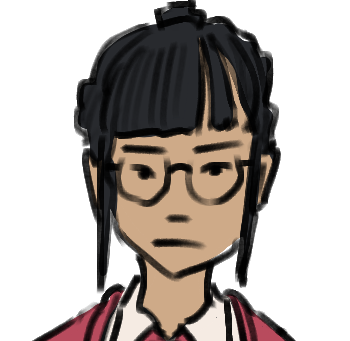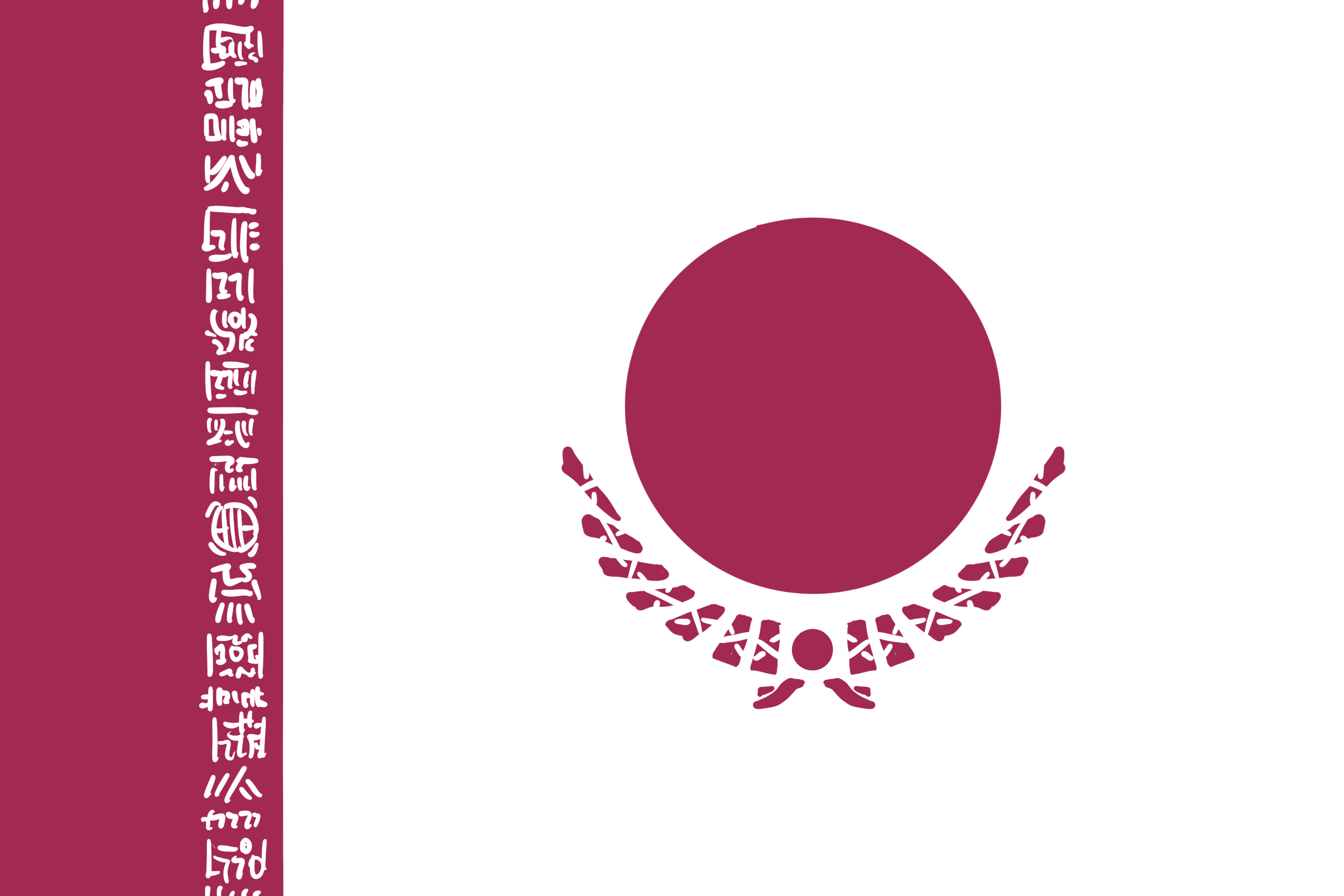NEW Story: Cocktail
Lola, Borough of Genesis

This article is not part of Vekllei canon. It may be old, obsolete or just a bit of fun.
Genesis of Utopia #
Vekllei did not originate in Lola – according to the Saga of Origins, Vekllei emerged from the corpse of a petty creator god named Oslola. But there was some truth in casting Lola as the genesis of the Vekllei nation-state, since this is where Scandinavian settlers first landed over three thousand years ago, and was where the 1st and 2nd Commonwealths consolidated their power and united the Vekllei Islands.
In its peak, Lola was a colonial metropole that rivalled any of the European capitals in wealth and monument. It was the jewel of the 3rd Commonwealth – the military government – and retained the splendid summer palaces and elaborate roman baths of the old monarchies.
Flag of the borough of Lola.
The war destroyed Lola and its ancient capital district, Reykjavic. Two 5 megaton fission bombs struck near its harbour, and the blasts rushed up its surrounding plains and steep hills, poisoning its earth with radiation and wiping clean a thousand years of history. Nearly 500,000 people died.
One genesis folds into another; the 4th Commonwealth, the ‘Floral Government’ of democracy and gentleness, was founded in its ashes. The new Vekllei has a new capital, and with it has moved its commerce and shipping. The new Lola, still lush with ruins and roofless homes, has been relieved of the burden of wealth. The borough has emerged as a home for immigrants, particularly Yiddish, Irish and Poles. They are building a new life in Lola; they are building a new Lola.
An Essential Journey #
Tzipora lived in Lola with Baron. Baron was an institutionalised person and had spend many years overseas, and government realtors had reclaimed his apartment. When he returned to Vekllei for good, he moved into a late uncle’s apartment in the tired neighbourhood of Seispri, a terraced community of light industry, workshops and immigrant families.
Seispri was Tzipora’s first home in Vekllei, and would always be close to her heart. It was a different kind of living to what she knew. Vekllei people were much poorer in some ways, but the quality of their lives was much better. There was a real sense of contributing to a different way of living; of improving their lot honestly; of shared burdens. Many immigrants to Vekllei arrived to participate in this project – whether they were Labour Zionists or Pan-Atlanticists, they all had their reasons for being here and made good use of their lives.
Baron’s apartment was above a garage and down the road from a canvas factory, but the houses were full of families with children. That was very nice, to see kids playing in the street. A creek ran behind the street, and you could catch little fish there sometimes.
Tzipora was a shadow of a girl by the time she finished high school. She was not good at anything in particular and did not have an immediate interest in university. Unresolved memories of the past were lurking in her mind’s periphery, and she was starting to worry they would kill her if she thought too long or too hard. On different days she felt her friends were leaving her behind or that she was holding them back. She was unravelling.
Rather than implode in Seispri, she decided she would renew her vows to the country she loved by touring its entirety on foot. This was actually a very old Vekllei tradition called the Visa Con, or ‘private pilgrimage.’ Like many such traditions, it was once a spiritual practice that has secularised in the postwar period. Tzipora had made her way from California to Utah on foot – so what was a hundred boroughs? She was good at walking.
Cobian had graduated school with good marks and had started a nursing residency at a Lola clinic. Tzipora had made up her mind quickly about the whole thing and wanted to say her goodbyes before she left. She called the clinic and met Cobian down by the tram station, near the busy heart of Seispri. It was nice here; the sun was out. They talked for a long while and held hands. After Tzipora said her goodbyes and Cobian had said her well-wishes they asked a passing girl to take their picture.


